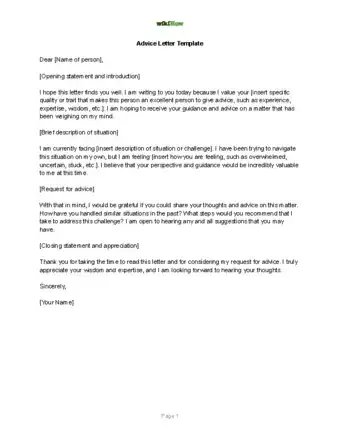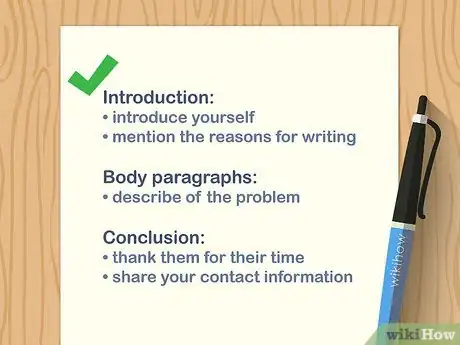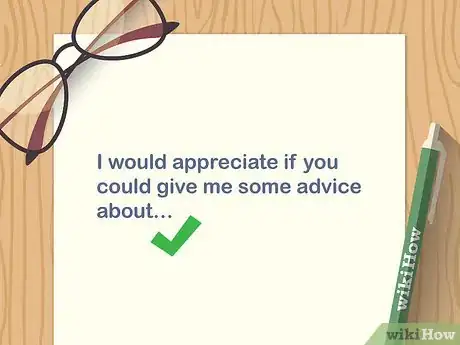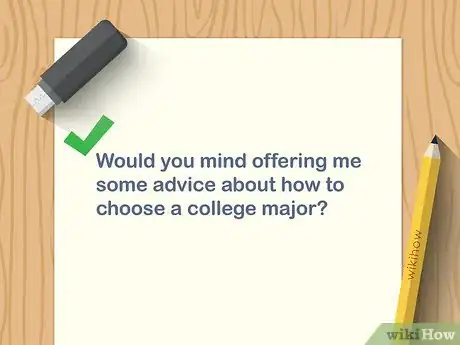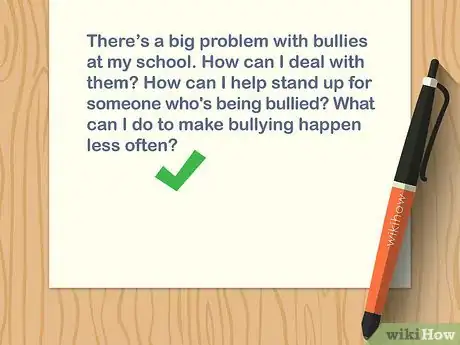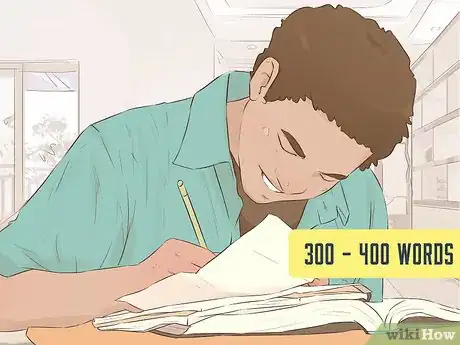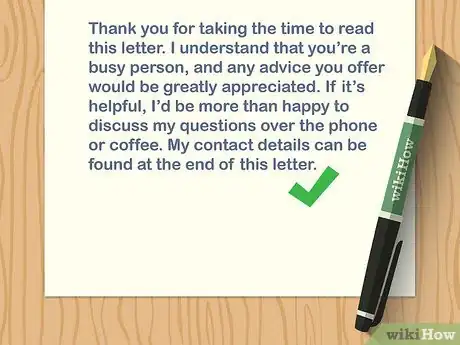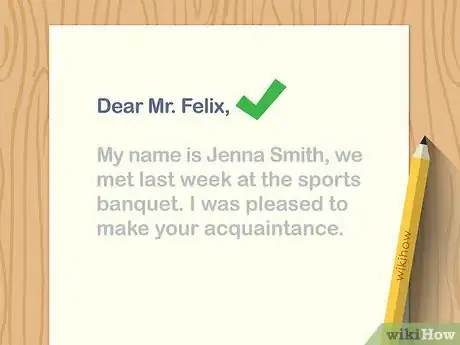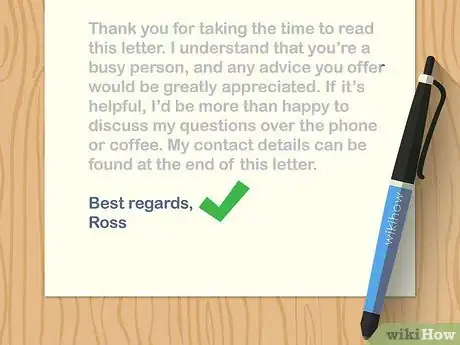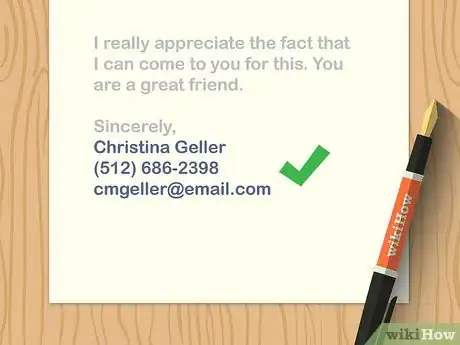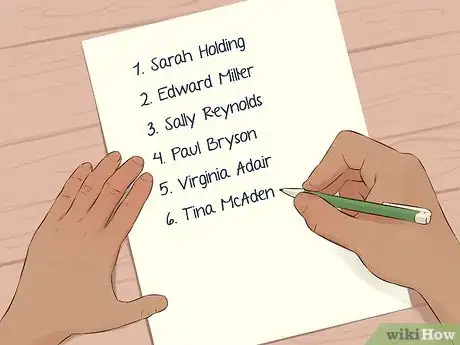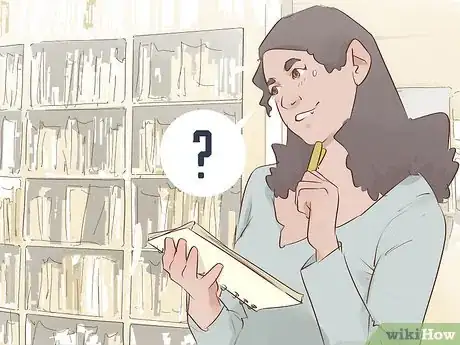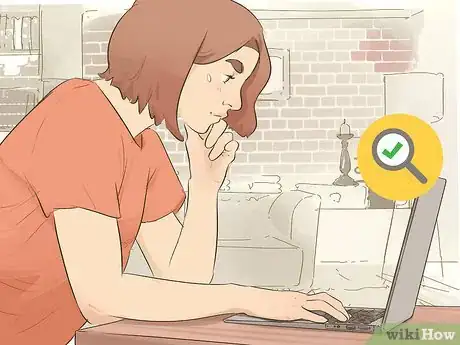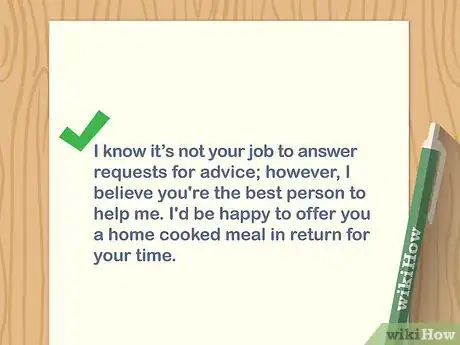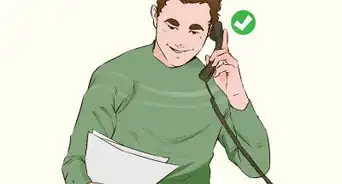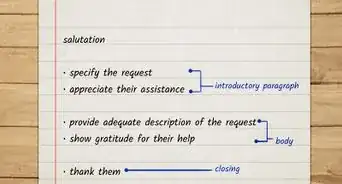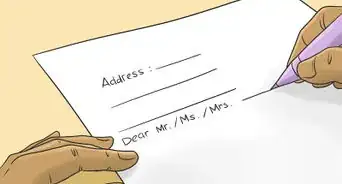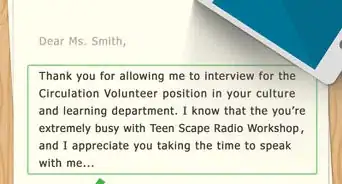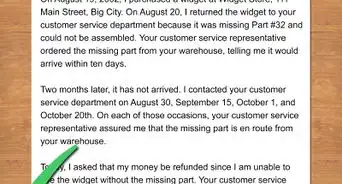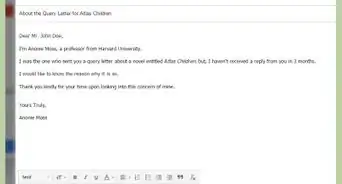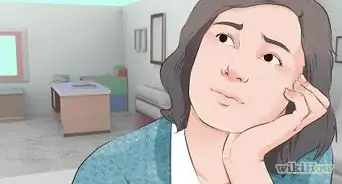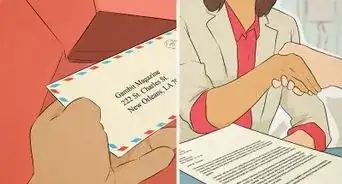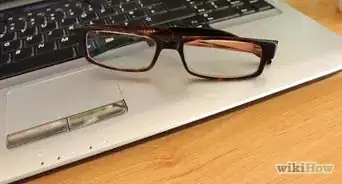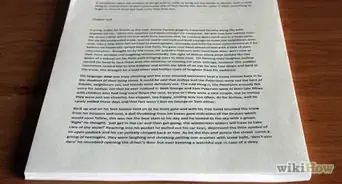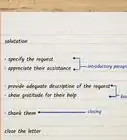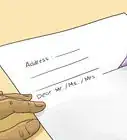This article was co-authored by Kirsten Thompson, MD. Dr. Kirsten Thompson is a Board Certified Psychiatrist, Clinical Instructor at UCLA, and the Founder of Remedy Psychiatry. She specializes in helping patients with mental health conditions such as major depressive disorder, anxiety, ADHD, bipolar disorder, OCD, PTSD, and postpartum depression. Dr. Thompson holds a BS in Operations Research Industrial Engineering from Cornell University and an MD from The State University of New York, Downstate College of Medicine.
wikiHow marks an article as reader-approved once it receives enough positive feedback. In this case, several readers have written to tell us that this article was helpful to them, earning it our reader-approved status.
This article has been viewed 482,780 times.
The need to ask for advice arises periodically throughout life. Looking for a job, navigating the world of relationships, dealing with bullies, or figuring out what to do about your first crush are just a few of the life circumstances that may lead you to ask others for advice. Asking for advice in writing is different from a face-to-face conversation because it means that you need to think things through carefully in advance, provide all necessary information and ask appropriate questions.
Steps
Sample Template
Composing the Letter
-
1Introduce yourself. If the person does not already know who you are, you will want to include a short paragraph introducing yourself at the beginning of the letter (after the salutation). Include information about who you are, and any information that is related to the reason why you are writing.[1]
For example, if you're asking for parenting advice, you can say, “My name is Anna Smith and I'm a 36 year old mother of two daughters.” In this case, you don’t need to say what you do for a living unless you're asking how to raise children while also working full time.
If you're writing to someone you don’t know, briefly let them know how you found them. For example, “I was referred to you by [insert name of person], who thinks you might be able to help me.”
-
2State why you are writing. After introducing yourself (if necessary), you will want to get straight to the point. You should begin by explaining the purpose of your letter. There are lots of ways that you can open a letter politely. Examples include:[2]
- ”I am writing to ask if you could help me with…”
- ”I would appreciate if you could give me some advice about…”
- ”I am writing to ask for your advice.”
- ”I wonder if you could help me with a problem.”
Advertisement -
3Be specific with what advice you want. You should come up with 3 to 5 questions that you want answered, and write them out. Avoid writing a long list of complicated questions that would take hours of work to answer. Keeping it short and to the point will increase your chances of receiving a reply.[3]
-
4Explain briefly why you are having trouble accomplishing the goal on your own. If you’re asking for advice for a problem or situation that you have been trying to solve on your own, but haven’t been able to. Then briefly explained what you have tried, and why it didn’t seem to work.[4]
- This can help the advice giver know that you really need their help and that you’re not being lazy. It can also save time and effort because they won’t suggest something you’ve already tried.
- For example, if you'd like advice on how to deal with bullying at school, you could say, “There's a big problem with bullies at my school. How can I deal with them? How can I help stand up for someone who's being bullied? What can I do to make bullying happen less often?”
-
5Keep it brief. The person you are asking for advice will be less likely to respond if you send them a very long and detailed letter. This is because they will have to spend significant time reading and understanding your letter. If and when they write their response, they will probably have to write a longer, more detailed response in order to address everything you have written. Keeping it brief will increase your chance of getting a response, especially if you are writing to a well-known person.[5]
- Try to keep your letter between 300 and 400 words. This length will give you enough words to introduce yourself and your questions without over doing it.
-
6Include closing remarks. Before you end the letter, you should include a “Thank you in advance.” You can also talk about a few different ways that you can be contacted to talk about your letter. It is important to show your appreciation in the closing remarks.
- Remember: this person does not have to help you, and if they take time to read your letter, you owe them a thank you.
- For example, you could say, “Thank you for taking the time to read this letter. I understand that you're a busy person, and any advice you offer would be greatly appreciated. If it's helpful, I'd be more than happy to discuss my questions over the phone or coffee. My contact details can be found at the end of this letter.”
Formatting Your Letter
-
1Include a salutation. A salutation is what you write at the very beginning of the letter to let the reader know the letter is meant for them. If you are writing your letter to someone you don’t know this part will need to be formal. On the other hand, if you’re writing to someone you know well, you don’t have to be so formal. Remember not to be too casual though as it is important to be polite.[6]
- When writing to someone you don’t know, you should say: “Dear Mr./Ms. [the last name of the person your are writing to].”
- In a less formal letter, you could say, “Dear [the first name of the person].”
- Regardless of whom you're writing to, always begin with “Dear.”
-
2Include a valediction. A valediction (also known as a closing) is the part of the letter where you wish them well in some way, and include your name. Some common closings that you could use include, “Best regards,” “Kind regards,” “Respectfully yours,” or simply “Sincerely.”
- If you're handwriting the letter, print your name carefully a few lines below the valediction, then sign your name in between these spaces.
- If you're typing the letter, enter a few spaces between the valediction and your name, then print the letter out. Sign it by hand before sending it out.
-
3Include contact information. At the bottom of your letter, underneath your name, include your phone number, email address, and any other way that they can get in contact with you. You should definitely include an email address or phone number, if you have one. If you are hoping for a response via mail, make sure to write your name and address neatly on the outside of the envelope.
- If you're hoping for a written response through the mail, include a self-addressed, stamped envelope with your letter. This way, the advice giver will only have to write their response and place it in the envelope provided before sending it back to you.
Choosing Who To Write To
-
1Make a list of people you think could help you. If you want advice about a specific topic, you should write down people you know have experience or knowledge with that topic. For example, if you want advice about how to deal with health issues, you might write to a nurse or doctor that you know.
- If you want to work as a nonfiction writer, write the names of accomplished writers, agents, or publishers that you could write to.
- Include the names of people you know personally and the names of people you don’t know as well, such as past teachers, former bosses or colleagues, well-known people from the area in which you are seeking advice, or even advice columnists.
- Don’t forget family members. People, such as your grandparents, have had many experiences in life. This makes them well-qualified to give advice. If you’re having trouble thinking of someone, go through your family members.
- You can write to famous people, but your chances of getting a response are small. If you get a response, it might be written by an intern or PR employee. The response may be generic and not address your needs specifically.
-
2Identify what you hope to get out of asking for advice. Before you decide who to write to, you will need to decide what it is you really hope to get out of the letter. Do you truly just want their advice, or are you perhaps hoping to do a bit of networking and get yourself acquainted with people in a particular area?
- For example, an advice giver may be able to connect you with specific resources or people, teach you how to do something, or provide a written response.
- Some people may have more connections and ways of getting you started on something than others. If you just want advice and nothing else, write to someone you know personally or to an advice column.
-
3Research the background of potential advice givers. If you are writing to someone you already know well you don’t need to do this, but if it is someone you don’t know, find out about their background to make sure they would be able to help you.
- For example, if you're looking for relationship advice, see if the person you want to write to has had education or experience working with couples before.
- Research can save you from wasting time. For example, different columnists often specialize in certain topics. Some focus on relationship advice while others might focus on practical life advice.
-
4Think about why the person should want to help you. Whereas a guidance counselor's job is to provide advice, others to whom you write may not be accustomed to giving advice on a daily basis. Think about why this person should be willing to help you, and what you can do to make it worth their while. You might appeal to the advice giver's sense of paying it forward or offer an exchange of services.[7]
- For example, if you know the person you could say, “I know it's not your job to answer requests for advice; however, I believe you're the best person to help me. I'd be happy to offer you a home cooked meal in return for your time.”
- If you don’t know the person, you might offer to compensate them for their time, if you can afford to do so.
Community Q&A
-
QuestionI'm 65 years old, and all my life I thought my father was my biological father. A year ago I find out he wasn't. I researched and found my biological father. He has passed but was a very well-to-do man. Should I introduce myself to his family?
 Community AnswerIt is your choice, do what your heart tells you to. If they don't accept you then don't cry over spilled milk. They weren't in your life to begin with, let them know what they are missing. But, I would start off by writing them a letter. Make sure to not come off too strong. Go along the lines of "Hello! My name is (your name) and I believe that (biological father's name) was my father." Tell them when you were born, your mother's name, or anything that might help them believe you. Then end the letter by saying, "I do hope you will write me back as I would love to get to know you. Sincerely, (Your name and return address)."
Community AnswerIt is your choice, do what your heart tells you to. If they don't accept you then don't cry over spilled milk. They weren't in your life to begin with, let them know what they are missing. But, I would start off by writing them a letter. Make sure to not come off too strong. Go along the lines of "Hello! My name is (your name) and I believe that (biological father's name) was my father." Tell them when you were born, your mother's name, or anything that might help them believe you. Then end the letter by saying, "I do hope you will write me back as I would love to get to know you. Sincerely, (Your name and return address)."
Warnings
- Understand that in many cases you might not receive a reply, especially if you are writing to a very well-known person or an advice columnist who might receive hundreds of letters and emails every day asking for advice.⧼thumbs_response⧽
References
- ↑ http://www.nicholasreese.com/how-to-ask-for-advice/
- ↑ http://www.slideshare.net/Nanci2010/letter-writing-givingasking-for-advice-letters-of-complaint
- ↑ http://www.nicholasreese.com/how-to-ask-for-advice/
- ↑ http://www.nicholasreese.com/how-to-ask-for-advice/
- ↑ http://www.nicholasreese.com/how-to-ask-for-advice/
- ↑ http://www.slideshare.net/Nanci2010/letter-writing-givingasking-for-advice-letters-of-complaint
- ↑ http://www.cbsnews.com/news/master-the-art-of-asking-for-advice/
About This Article
To write a letter asking for advice, start by introducing yourself and the reason for your letter. Briefly describe the problem you’re having, as well as how you have attempted to solve it and why you are having trouble accomplishing the goal on your own. You should also write out 3-5 specific questions that the person can answer to help you solve your issue. Try to keep your letter between 300 and 400 words to increase your chances of getting a reply. Keep reading to learn how to format your letter.
